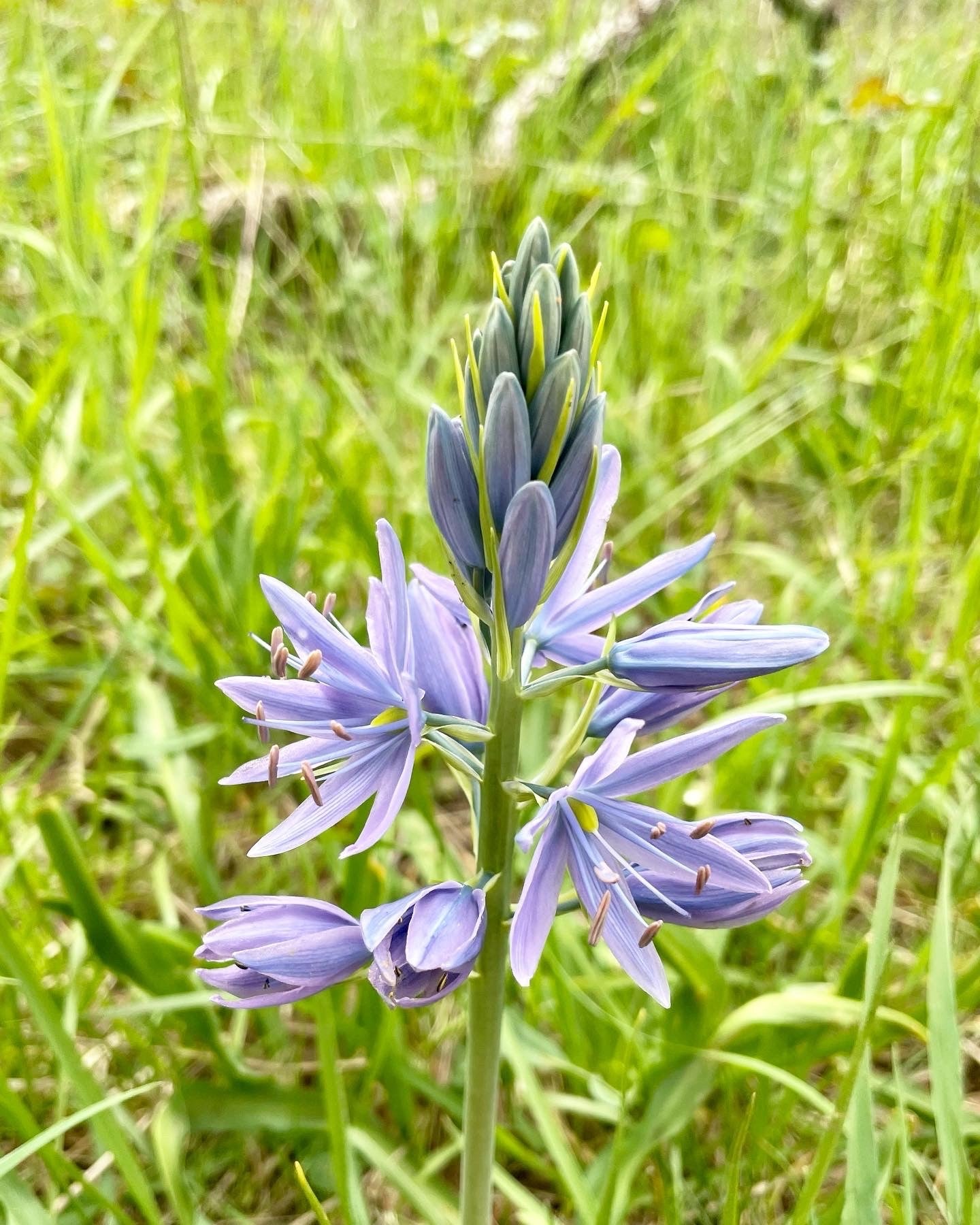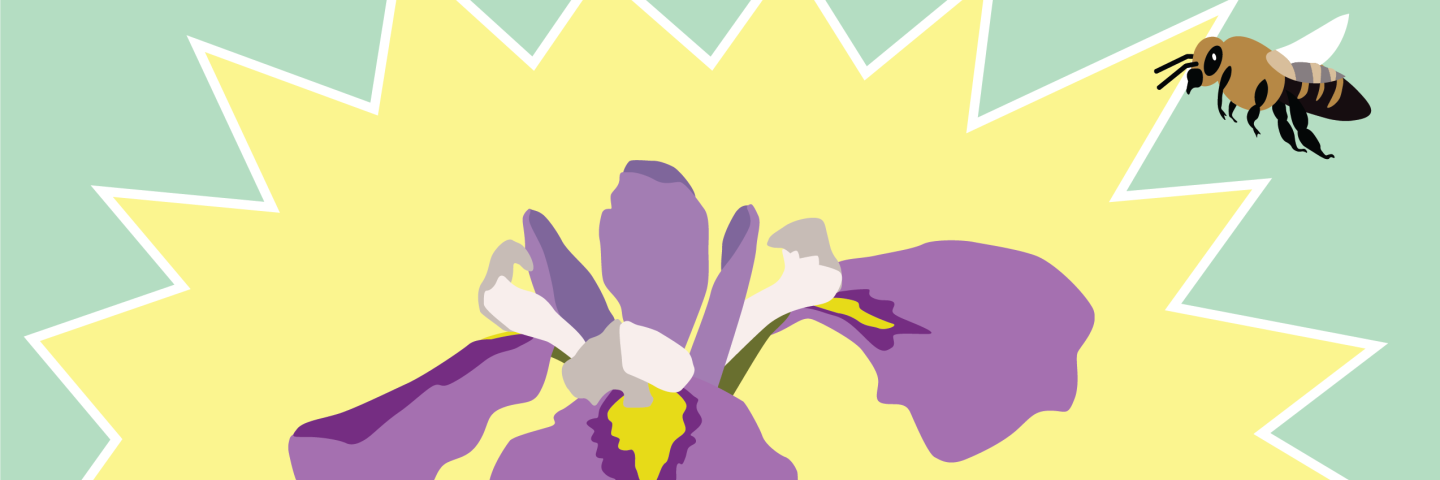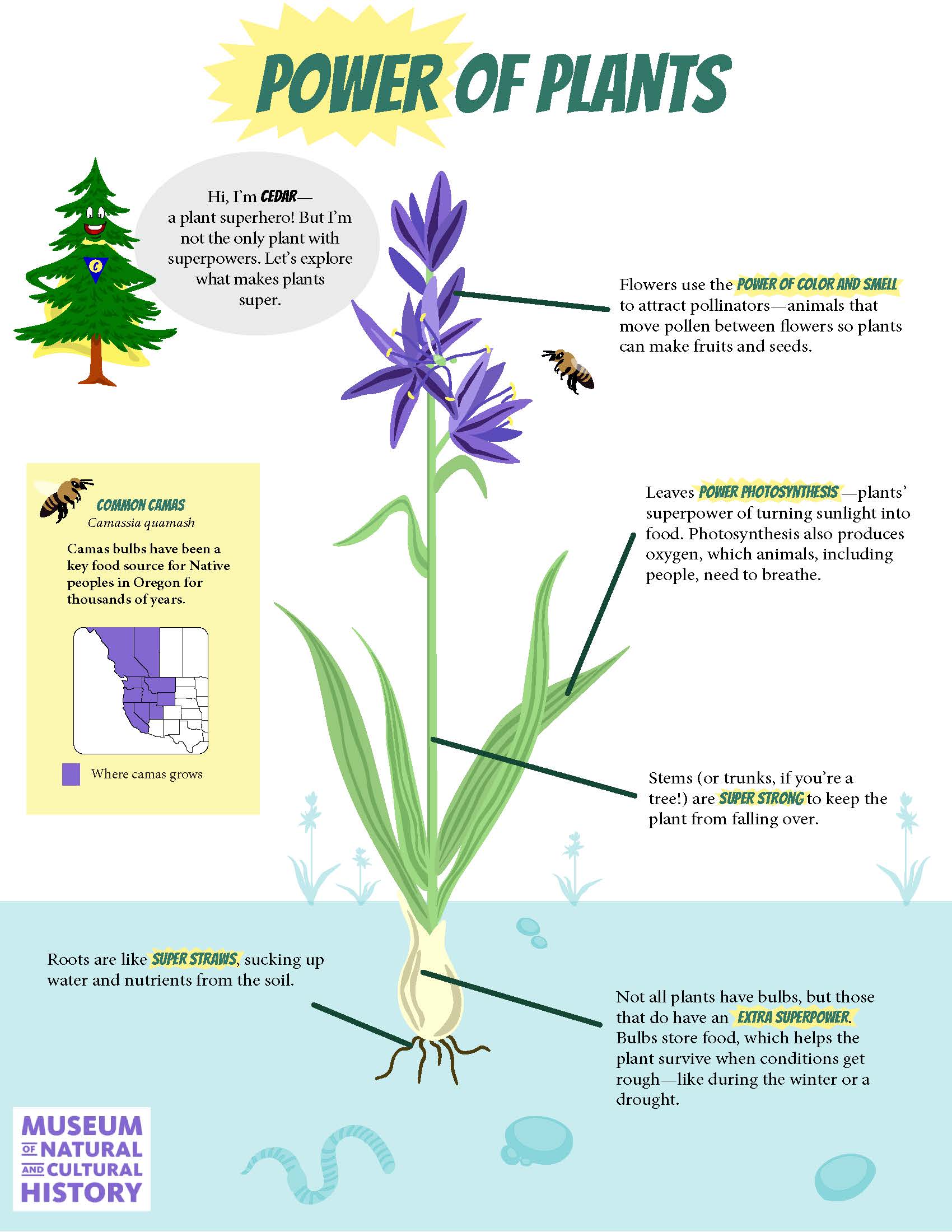Plants provide what we need to survive—from the air we breathe to the food we eat—and thrive—from the clothes we wear to the art and technology we create. A plant is a living system. To function and survive, it needs sunlight, air, water, nutrients, and space. Discover more about powerful plants with the activities below.
 | PARTS OF A PLANTFlowers use color and smell to attract pollinators—animals that move pollen between flowers so plants can make fruits and seeds. Leaves are where photosynthesis (turning sunlight into food) takes place. Photosynthesis also produces oxygen, which animals, including people, need to breathe. Stems (or trunks) are super strong to keep the plant from falling over. Bulbs store food, which helps the plant survive when conditions get rough—like during the winter or a drought. Not all plants have bulbs. Roots are like straws, sucking up water and nutrients from the soil. |
PLANT POSTERLearn more about plants with this poster. |
EXPLORE MORE!
 | ACTIVITYSuper Seeds! Pretend you are a plant and need to spread your seeds. Use the guide and template to design seeds that can meet the challenges. |
 | ACTIVITYPlant Diversity Survey Discover how many plants can grow in a small area with thestep-by-step guide. |
 | ACTIVITYHow do you use plants? Plants are an important part of our everyday life. Use this scavenger hunt to explore your home and find all the ways that plants are used. |
 | ACTIVITYDefying Gravity With this experiment, see how plants get water and nutrients up through their roots and stem. |
 | ACTIVITYFlower Features Find out what the different parts of a flower are for by following these simple instructions and using this dissection sheet. |
 | EXPLORENative Plants in Oregon Basketry Basketry from the museum’s collections is a rich resource for learning about native plants used in weaving as well as the traditional ecological knowledge of Oregon’s contemporary weavers and Tribal members. Visit our collections galleries to view more photos of Native Plants in Oregon Basketry. |
Explore our other at-home adventures.
Please note: The University of Oregon has no control over the content offered by third party websites. Parents and guardians should monitor the online activities of their children to ensure the content is age appropriate and to ensure the safety of their children.

